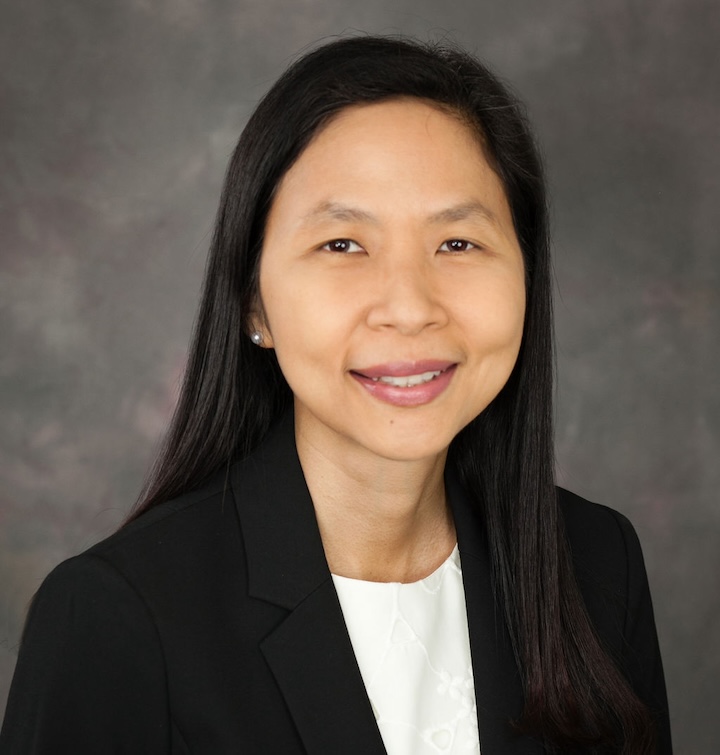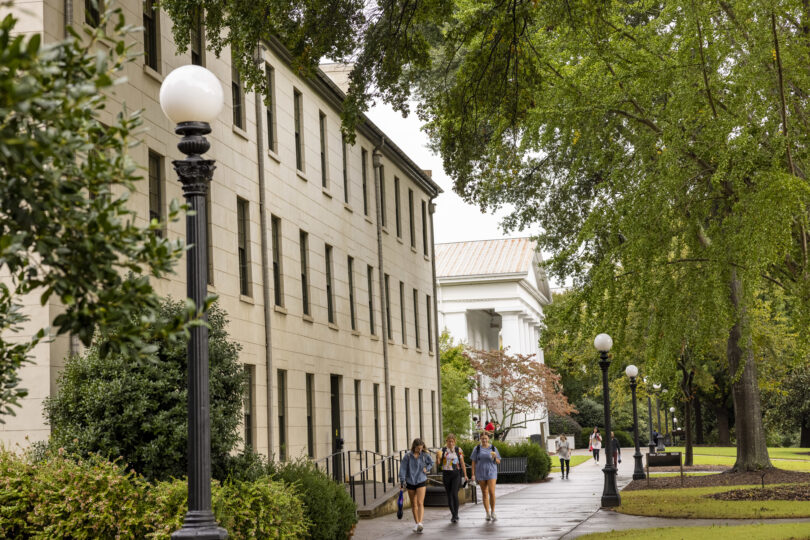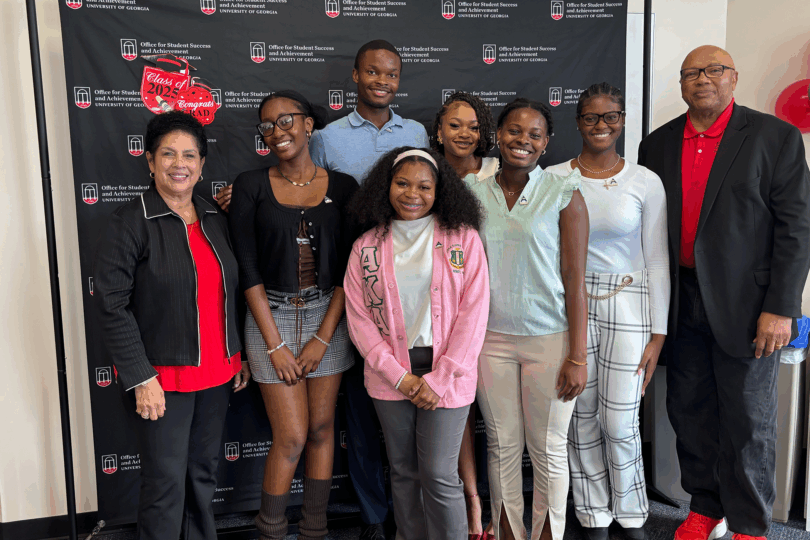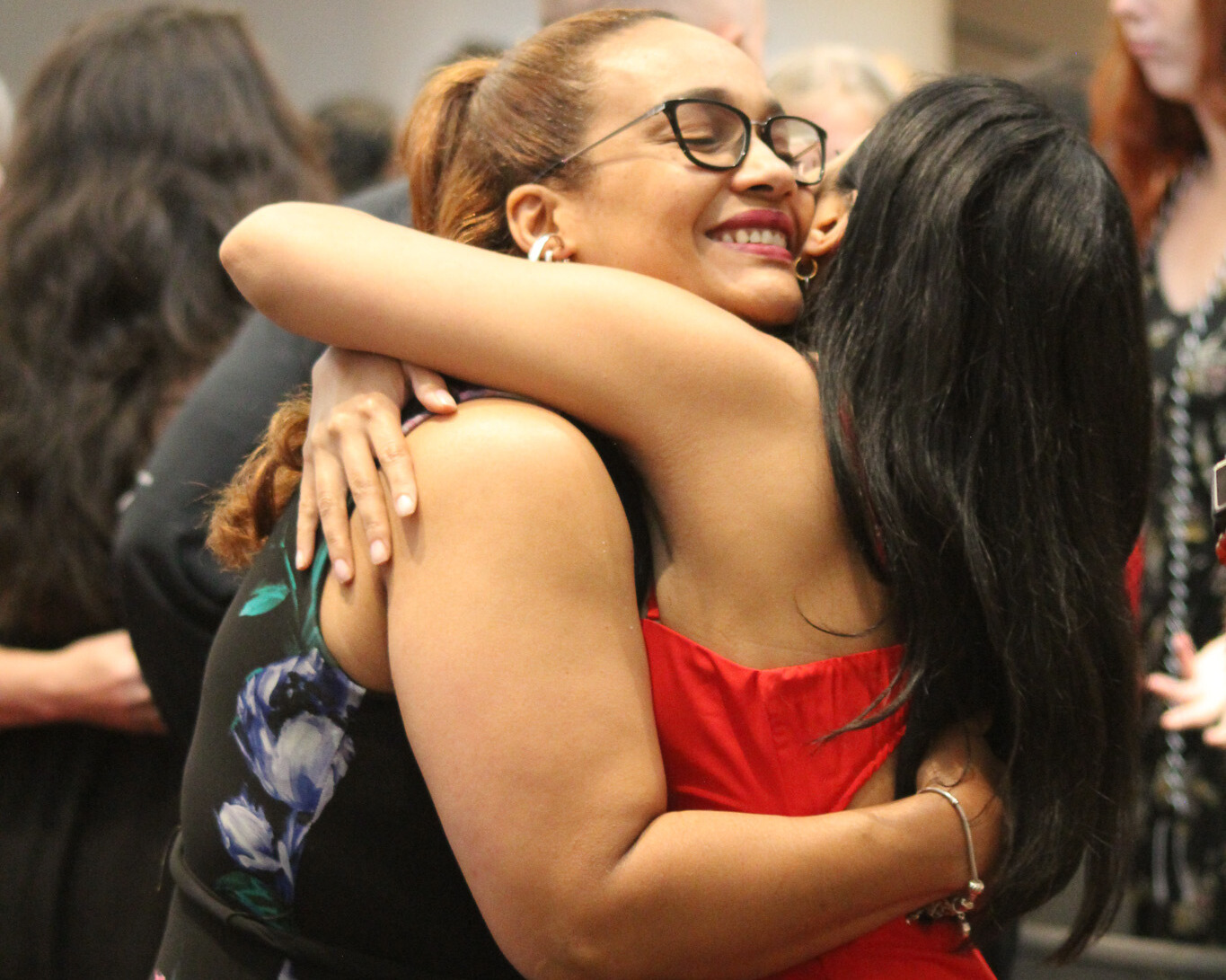Dr. Sayamon Singto
Senior Lecturer and Academic Coach

Dr. Singto’s work focuses on helping students succeed and sustain their progress throughout their time at UGA and beyond. She works with freshmen and transfer students to support their transition to UGA. In her literacies courses (UNIV2112 and UNIV2114), she helps students develop knowledge and skills that prepare them for courses in social sciences and pre-professional majors. She is also involved with the DAE’s peer education programs by teaching training courses for peer tutors and peer learning assistants. She also serves as a writing tutor and offers ongoing training for undergraduate peer writing tutors.
Education
- Ph.D. in Language and Literacy Education — University of Georgia
- M.A. in Linguistics — Mahidol University, Thailand
- Bachelor of Education — Chulalongkorn University, Thailand
Awards & Honors
2023-2024 Service-Learning Fellow
UGA Center for Teaching and Learning Writing Fellow (2021-2022)
Areas of Expertise
My pedagogical interests include student success, student transition experiences, and academic writing.
Teaching Philosophy
My central belief is that learning in the higher education context should encourage students to become resourceful and self-aware individuals. Learning entails critical engagement with course material, assignments and class activities. As a result, students develop various competencies that are transferable to new learning contexts or their lives beyond UGA. For example, in the Literacies courses (UNIV 2112 and UNIV 2114), students learn how to become critical consumers of information and develop written and oral communications skills necessary to effectively present their arguments. In essence, mastery in this context means that students can effectively locate, evaluate, and use information to complete a task or solve a problem. Resourcefulness is also one of my goals for UNIV 1201 where students have opportunities to practice skills in planning, organizing, decision making, and problem solving in the context of their own learning. A necessary precursor to resourcefulness is the ability to reflect on their own learning. I believe that it is critically important to practice metacognitive strategies in order to gain perspectives on how students can handle challenges, deal with setbacks, and make plans for improvement.
I also see learning as a social activity, so I teach these necessary academic and life skills through collaborative learning. I try to engage students in conversation on every topic that we cover in class. I believe students have valuable insights and experiences that they can share with their peers and me. With this belief, I structure class discussion in ways that make it relevant to their immediate and long-term goals. In UNIV1201 and UNIV2302, for example, I ask students to share their struggles and how they overcome difficulties in learning complex material or in transitioning into a new environment. I feel that such conversation helps create a sense of belonging among the community of learners who share common ground, a desire to succeed in college. In my UNIV2900, a seminar on academic writing for international graduate students, students often serve as valuable resources for one another. When they engage in peer-feedback activities, they impress me with their ability to explain certain concepts or offer creative ways to address writing issues. To ensure that students reflect critically on the feedback they receive both from their peers and from me, I ask students to consider how they may utilize these comments and make a plan for revision. This reflection is similar to a letter that someone might write to an editor to justify the revision made to a manuscript submitted for publication.
In addition to peer-feedback activities, I utilize pair and group assignments that require students to work with one another to accomplish a task. For example, in UNIV2112 and UNIV2114, students write research papers on the same topics but from different perspectives or opposing viewpoints. While students write their own papers as an individual assignment, they collaborate with their peers when choosing the shared topics and presenting their papers together. In UNIV 2112, the goal is to learn how two different disciplines of social science investigate the same social phenomenon. In UNIV2114, students have the opportunity to explore different views on the same business-related issues. In UNIV1201, students working in groups have an opportunity to practice one of the important learning strategies, learning the material well enough to teach others. Each group of students gets to choose a topic from one of the courses that they take and teach that topic to the class. To successfully complete this assignment, students need to develop interpersonal communication skills, which are integral to their success here at UGA and in their professional futures.
While I value the benefits of collaborative learning, I recognize that these activities need to be carefully and intentionally structured. Starting early in the semester, I incorporate shorter in-class collaborative learning activities such as think-pair-share, or small group discussion. The purpose is to make it clear to students that they are expected to interact and collaborate with one another. Through my interaction with students, I try to set the tone for classroom interactions among peers by modeling how they can communicate with one another, including asking questions, disagreeing, or offering alternate perspectives and answers. These activities lay the groundwork for productive group dynamics for larger collaborative projects which require careful planning and clear instructions. I ask students to create a plan detailing a timeframe, deadlines, allocation of roles and responsibilities. To ensure that team members fulfil their obligations, I give students an opportunity to evaluate themselves as well as their peers. Aside from holding one another accountable, this self and peer evaluation encourages students to reflect on what they have learned through collaborating with their peers.
The ability to reflect on one’s learning is integral to personal growth. To help students develop such ability, I utilize written reflections as formative and summative assessment. One of the challenges of this type of assessment is that it is personal and subjective. Therefore, I communicate the purpose and expectations of these written reflections. I emphasize both the process and the product of reflection. Instead of simply describing what they have learned, I encourage students to critically analyze the content and the process of learning it, as well as connect it to their lives. In addition to promoting personal growth, these written reflections allow students to practice and improve writing skills since quality of writing is one of the assessment criteria.
I fundamentally believe that all students have potential to learn and grow. My role is to create an environment conducive to learning and growth and provide plenty of opportunity for students to actively engage in construction of knowledge in a collaborative learning environment.




